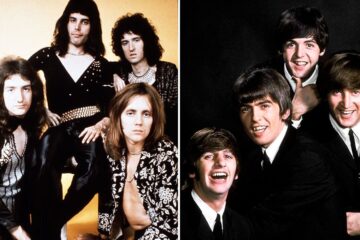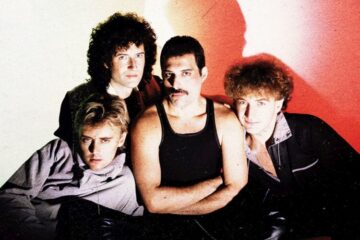News The moment rock music was born, according to Keith Richards
The exact moment rock ‘n’ roll first reared its non-conformist head is a matter of some conjecture, but few will argue that the moment arrived outside the 1950s. Laying the groundwork for the 1960s pop rock takeover, as led by Paul McCartney, John Lennon, Mick Jagger and Keith Richards, the 1950s threw out such titans as Elvis Presley, Chuck Berry, Little Richard and Buddy Holly.
Like practically everything, rock ‘n’ roll didn’t arrive a bolt from the blue. The early rock sound was synonymous with rhythm and blues, rooted in early 20th-century Mississippi Delta blues music. Over time, progressive pop artists folded in influences from other genres, like gospel, country and folk. Pianists like Little Richard and Jerry Lee Lewis also brought the boogie-woogie aspect to proceedings.
When The Rolling Stones entered the fray in 1963, rock ‘n’ roll was well established and on the verge of global commercialisation. Britain became the hub of innovation for this chapter in the genre’s story, with The Beatles embodying the so-called British Invasion. In 1966, American guitarist Jimi Hendrix consolidated this transition as he moved to London to find a more nurturing environment for his unrivalled talent.
October 17th, 1961, marked a critical moment in the history of British rock music. That day, Mick Jagger and Keith Richards, still in their late teens, struck up a conversation for the first time on platform two at Dartford Railway Station. Jagger held a stack of rhythm and blues records under his arm, which weren’t yet commonplace in the UK, prompting Richards’ approach.
While Jagger and Richards developed their songwriting abilities, The Rolling Stones made their first inroads in the UK charts by leaning on trusty R&B covers by some of their favourite American stalwarts, such as Bo Diddley, Chuck Berry, Muddy Waters and Howlin’ Wolf. Unlike The Beatles, the Stones were more infatuated with the bluesy side of rock ‘n’ roll; therefore, as far as Jagger and Richards were concerned, rock ‘n’ roll was ignited on the strings of Muddy Waters’ electric guitar.
Although Richards would credit his early blues heroes as instrumental in rock’s existence, he deems 1956 as the first year of the genre as a recognisable force in music. Most notably, it was the year US pop charts and rhythm and blues charts began to look much the same as Elvis Presley achieved his first number-one hit single in the US with ‘Heartbreak Hotel’.
In 1956, Richards was just 13 years old and had been introduced to music by his maternal grandfather, Augustus Theodore “Gus” Dupree, a touring jazz guitarist. A fascination with rock ‘n’ roll grew throughout his teen years. “When I was 15, rock ‘n’ roll was a brand-new thing,” the guitarist remembered in a 1987 interview with Rolling Stone. “We were very conscious that we were in a new era. Totally. It was almost like AD and BC, and 1956 was year one.”
Richards felt that, before 1956, he was living in a monochrome world, but after rock music entered the airwaves, he saw colour and found purpose. “Suddenly, there was a reason to be around, besides just knowing you were gonna have to work and dragging your arse to school every day. Suddenly, everything went zoom – glorious Technicolor.”
A small handful of proponents founded the initial scene, but as Richards noted, its global impact was dramatic. “It was an international explosion,” he added enthusiastically. “Just a few little goddamn records by some guys in Memphis and Macon and places like that. But they really did have an effect. It’s absolutely amazing.”
Further to music’s immediate entertainment value, rock had a provocative quality that picked its admirers up by the scruff of the neck and defied political boundaries. “It’s reshaped the way people think. I mean, now you’ve got rock ‘n’ roll concerts in Moscow because you can’t stop that shit. You can build a wall to stop people, but eventually, the music it’ll cross that wall. That’s the beautiful thing about music – there’s no defence against it,” Richards concluded.
Rock music didn’t take an overtly political position until the 1960s, when Bob Dylan popularised folk, encouraging a generation to denounce injustice through song. However, from the get-go, rock music came hand-in-hand with a youthful arrogance and cheeky, non-conformist outlook primed for a countercultural revolution.
Watch The Rolling Stones perform in one of their early concerts below.




